Jeffrey de Visscher harbours a “small dream” to coach at Aberdeen in the future after helping steer FC Twente into next season’s Champions League play-off round.
The Dutchman, a former Dons winger, is now an assistant coach under Joseph Oosting at Twente in his homeland.
Twente’s 2-1 closing-day win at PEC Zwolle meant they finished third ahead of AZ Alkmaar in the Eredivisie and will enter European football’s premier competition at the final qualifying round in the new season, competing for a place in the group stage.
De Visscher, 42, joined boyhood club Twente’s youth academy eight years ago, initially coaching their under-14s.
Ex-boss Rons Jans asked him to join the first-team setup three years ago, with Twente having built on their previous progress under Jans during Oosting’s first campaign in charge this season.
De Visscher said: “First season was fourth place, last year was fifth place – so we managed to be in the play-off for the Conference League.
“Sunday was a very important match for us and we won to qualify for the qualification round for the Champions League, so it’s going really well.”
One of three assistant coaches under Twente head coach Oosting, De Visscher’s responsibilites include taking daily training, individual development plans for the squad, taking charge of attacking set-pieces, and being the link-man between the club’s youth academy and first-team.
Twente operating with similar talent model to Aberdeen
Having spent the 2018-19 campaign in the Eerste Divisie following financial issues and relegation, Enschede-based Twente have gradually reestablished themselves among the Eredivisie’s top sides in the five seasons since coming back up to the Dutch top-flight – culminating in their Champions League breakthrough.
Mirroring the approach at Aberdeen in recent seasons, Twente have reaped the rewards – on the pitch and financially – from bringing through their own talent while also speculating on promising young players from other clubs.
De Visscher said: “We’re in a good position. But still the club have a lot of debts they have to pay.
“We try to buy players, for example, Manfred Ugalde. We bought him – he was a striker and he was very important for us.
“(But) we sold him to Spartak Moscow (for a reported 13 million euros just six months after signing him for 4 million euros), because it was the offer you can’t refuse.
“The offers over five or six million, Twente will be thinking about selling players for that sort of money.
“We try to develop the young players and want a lot of our own players from the academy in the squad.
“If they perform well, like Mees Hilgers, the centre-half – he is very, very good – they will be interesting for other clubs.”
Another example of Twente’s shrewd transfer dealings is 22-year-old no.10 Sem Steijn, who was secured on a free transfer two summers ago, becoming their top scorer – and the fifth-highest scorer in the Eredivisie – in the campaign just finished with 17 goals.
‘I hope I can be on the coaching staff of Aberdeen. I really would like that’
While he is focused on Twente and their upcoming Champions League adventure, De Visscher is also eager to secure his Uefa pro licence – something which could help him fulfil a goal: a coaching return to Aberdeen in the future.
He said: “In Holland, you need to qualify for the pro licence – it’s only 12 guys who qualify, and it’s 200 coaches who want to get it.
“My main goal now is to be the best assistant coach for the head coach that I can be, and contribute to the team where I can.
“Having good contact with the players is very important for me, and in a couple of years, to try to get my manager papers.
“It’s a small dream, but in the future I hope I can be on the coaching staff of Aberdeen. I really would like that. It’s one of my goals.”
De Visscher: Aberdeen a special place for my family, but I didn’t deliver for Dons
For Jeffrey de Visscher, Aberdeen is a city of football regret – but one he and his family are also immensely fond of.
The Dutch wideman was 26 when Jimmy Calderwood brought him to Pittodrie from then-Eerste Divisie champions De Graafschap in the summer of 2007.
There were pre-existing links between player and manager – Calderwood had a house in De Visscher’s hometown of Almelo, having finished his own playing career at Heracles Almelo before going on to boss Willem II and NEC Nijmegen.
This was in the years before Calderwood returned to Scotland to take charge at first Dunfermline Athletic and then the Dons.
De Visscher’s older brother Rene was also a team-mate of Calderwood’s son, Scott, at Heracles in the late-1990s.
Though he was held back by multiple injuries during his 18-month spell at Aberdeen, De Visscher says the Granite City is a “special place” for his family, including wife Marijke, and daughters Julia, now 20, and Aberdeen-born Anna, now 15.
De Visscher said: “It was the best 18 months we’ve been at a club, where we lived somewhere else and it was really nice.
“Aberdeen will always be a special place for us, because our youngest daughter was born in Aberdeen.
“Football-wise, it wasn’t the best period.”
He added: “I knew what I could do, and I didn’t deliver, so it’s simple like that.
“I could’ve done a lot better, and when I look back at my spell at Aberdeen, I’m always a little bit frustrated, because it’s a very good feeling to play good games for the club, and if you know you can do more, and you’re not performing, it’s frustrating.
“I could have brought a lot more if I was fit.
“I wish I’d done better – because it was joy to play for Aberdeen, in the stadium, for the supporters.”
Injuries held De Visscher back at Pittodrie
De Visscher signed for Aberdeen from De Graafschap with a knee injury which required surgery and – despite a gruelling, notorious pre-season trip to Egypt in the opening part of his Dons spell – full fitness eluded him.
Amid a litany of physical setbacks, he managed 30 appearances (13 off the bench) and three goals in his first campaign.
Among these problems were the knee issue, a lengthy absence with a groin injury in the opening weeks of the season, an extended period out with a foot problem – from kicking another player’s boot – in the winter, and a hamstring tear in the spring.
De Visscher revealed he would regularly go home and be unable to walk as he tried to battle through pain stemming from the initial knee injury and carve out an Aberdeen career.
He said: “I came in with the knee injury and I’m not a quitter. I felt pain – but I didn’t let the coaches see that.
“I went home and I couldn’t walk anymore, but I just wanted to be in the squad and to try to play.”
A near-Scottish Cup quarter-final winner against Celtic spoiled by old pal ‘Big Jan’
Aberdeen had finished third in the Scottish Premier League the season before De Visscher’s arrival, which secured Uefa Cup football for 2007-08.
Despite his fitness struggles, in the first half of the season, he played his part as a late substitute in group games at Panathinaikos (3-0 defeat) and at home against Lokomotiv Moscow (1-1 draw), while also playing the whole second half at the Calderon against Atletico Madrid (2-0 loss).
De Visscher missed the famous 4-0 Pittodrie thrashing of Copenhagen due to his foot injury, but he came off the bench late in the 5-1 last-32 second leg defeat against German giants Bayern Munich at the Allianz Arena in February 2008.
A Scottish Cup quarter-final performance against Celtic at Pittodrie on March 9, 2008, however, was De Visscher’s most notable in red.
His 79th-minute goal to make it 1-0 had Aberdeen on course for Hampden… only for his old pal and fellow product of Twente’s youth ranks, striker Jan Vennegoor of Hesselink, to steal his thunder with a late leveller for the Hoops.
De Visscher laughs ruefully at the memory, saying: “Big Jan scored.
“I coach his son now at FC Twente.
“Of course (it was frustrating) – it was good goal, I was very happy with it and thought we were winning the game, and then it was a late equaliser.”
De Visscher couldn’t play in the replay at Parkhead nine days later because he tore his hamstring in training on the eve of the game.
He said: “I can remember I played like four or five games in a row around the quarter-final against Celtic, and then I tore my hamstring.
“It was really, really bad timing, because I’d improved my game and I was getting into the first XI.
“That hamstring injury was really bad for me and took about six or seven weeks – and after that it was really difficult to get in the squad again.”
Darren Mackie’s goal in the replay against Celtic meant the Dons did reach Hampden, only to suffer an infamous 4-3 semi-final defeat to lower-league Queen of the South in a tie De Visscher also missed due to his hamstring.
De Visscher on why he decided to leave Aberdeen early
In his second season, 2008-09, De Visscher started the opening game against Inverness, but was then a peripheral figure until December.
Having racked up only 12 appearances, with five coming off the bench, without scoring, by the January, he decided to leave Aberdeen – for both football and family reasons.
In January 2009, he departed with six months left on his deal to return to the Dutch second tier with Cambuur Leeuwarden.
Detailing how his exit came about, De Visscher said: “I think I just wasn’t good enough at that time.
“The coach makes decisions and has to play the best-performing players – and I think I wasn’t one of the best, so that’s an easy call for the coach.
“I remember the decision-making when we went home.
“My family came over a lot – my mother came over and the mother of my wife came over.
“My (older) daughter was at the age where she went to pre-school, and it’s a real joy when they (family) come to visit you, but it’s also struggling when they went home again.
“One day we went to the airport in Edinburgh (to see them off) and my daughter just collapsed – that was the sign we need to go home, because I couldn’t see my daughter in that state.
“And I wasn’t playing, and I think I could do more – the whole situation – so I went to Jimmy, explained, and said I want to leave.”
De Visscher says there were never “hard feelings” against Calderwood, who was “always honest” about his game-time prospects, telling him he was behind the likes of Mackie in the pecking order, while still offering the Dutchman the chance to extend his stay in the north-east.
He described his larger-than-life former gaffer’s well-publicised battle with dementia in recent years as a “tragedy”.
Cambuur, Emmen and playing on until he was 41
De Visscher’s 18 months with Cambuur after leaving Aberdeen were positive, with the club missing out on promotion to the Eredivisie via a play-off penalty shoot-out in his first few months, before the winger netted nine times on their way to the play-offs again in his second campaign.
Sponsorship difficulties at Cambuur then saw De Visscher move on to another Eerste Divisie side Emmen (where Aberdeen’s current Dutch winger Vicente Besuijen has been on loan this season).
De Visscher had spent time on loan at Emmen from Twente as a youth, and on his return he met assistant coach Joseph Oosting – the head coach he now works under at Twente.
Having played on at Emmen for another two-and-a-half seasons before leaving the professional ranks in 2012, De Visscher explained he only actually hung up his boots for good two years ago, eventually dropping to Sunday league level with his mates.
He said: “I was in the transition of getting my papers for a coaching licence, so I played for a good team at Genemuiden, and then Rohda Raalte.
“After that I played with my friends at my local club – I think I was 41 when I stopped, which was two years ago.
“We played at nine o’clock on a Sunday morning. You don’t do warm-ups, you just put on your clothes, play a game, then you go back again and have a good time!”
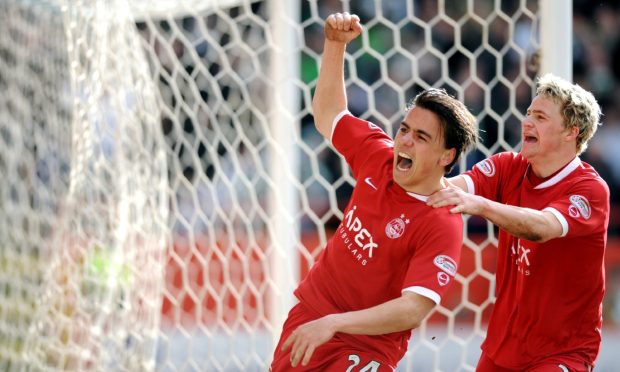
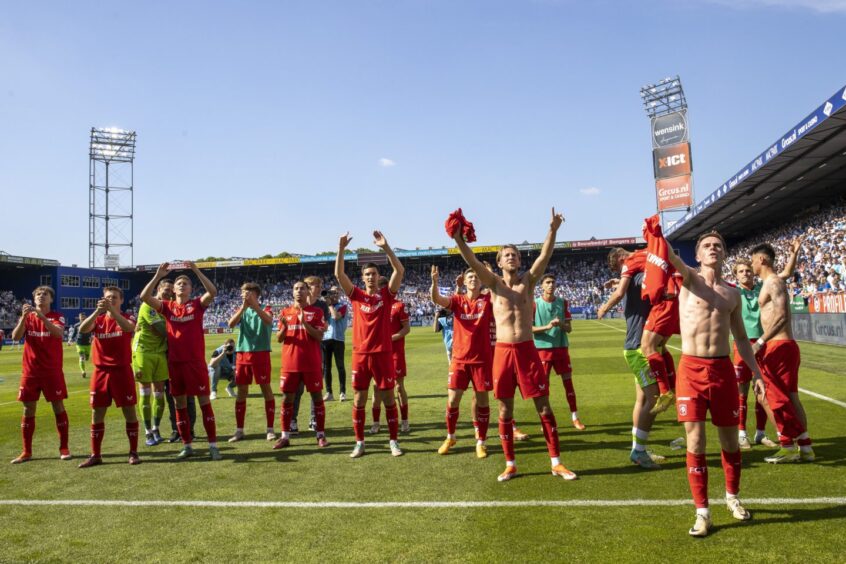
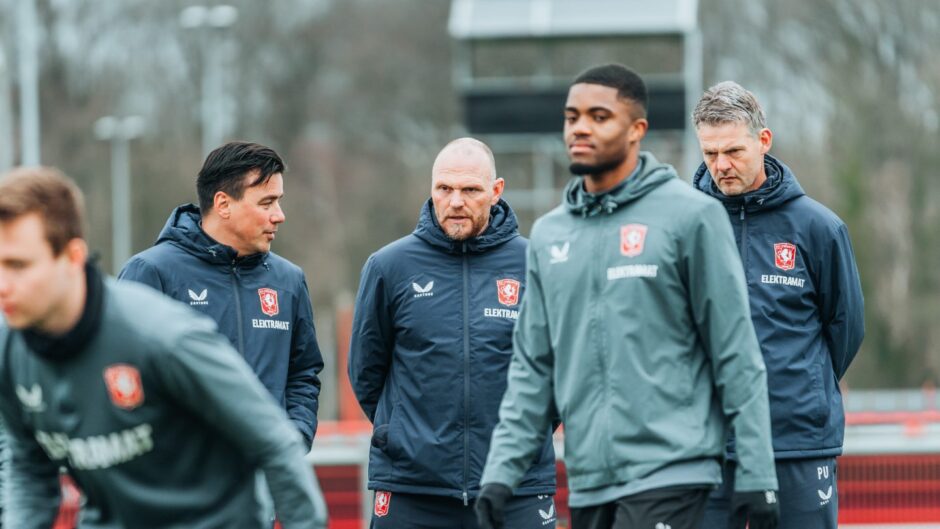
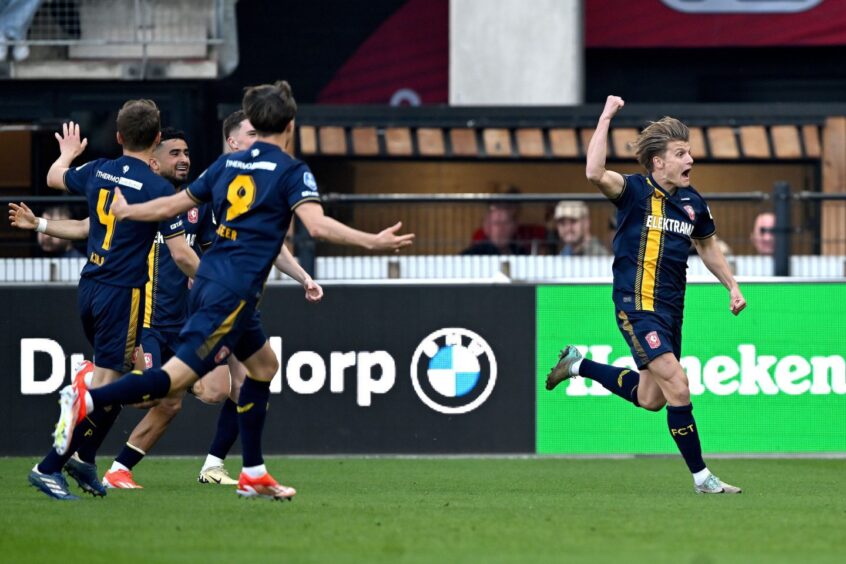
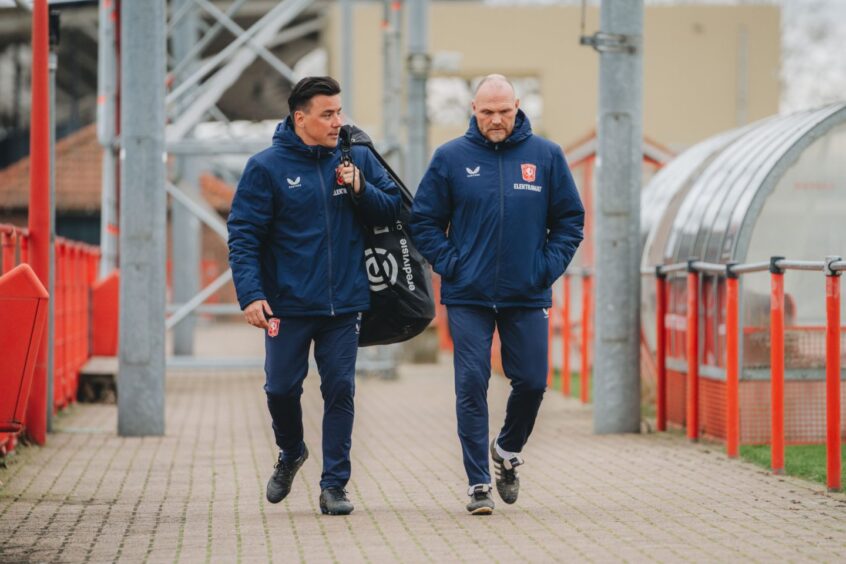
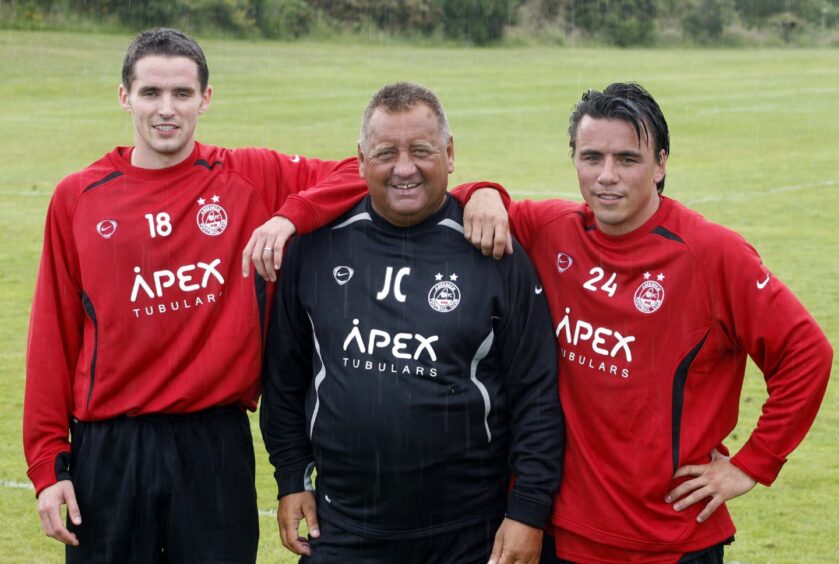
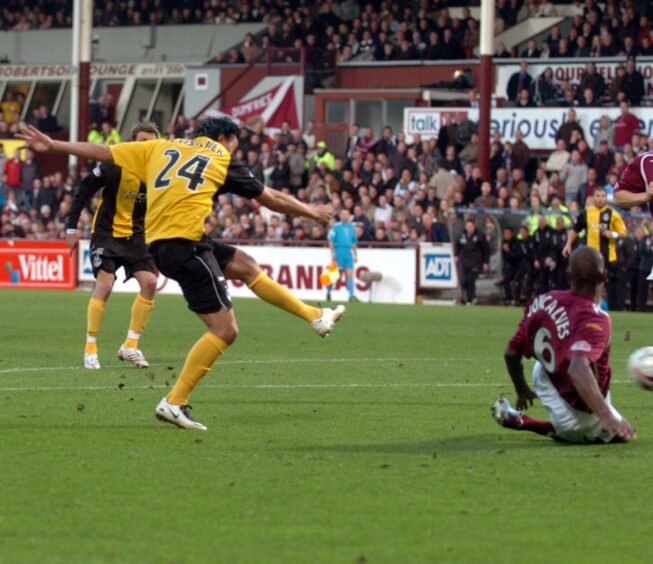
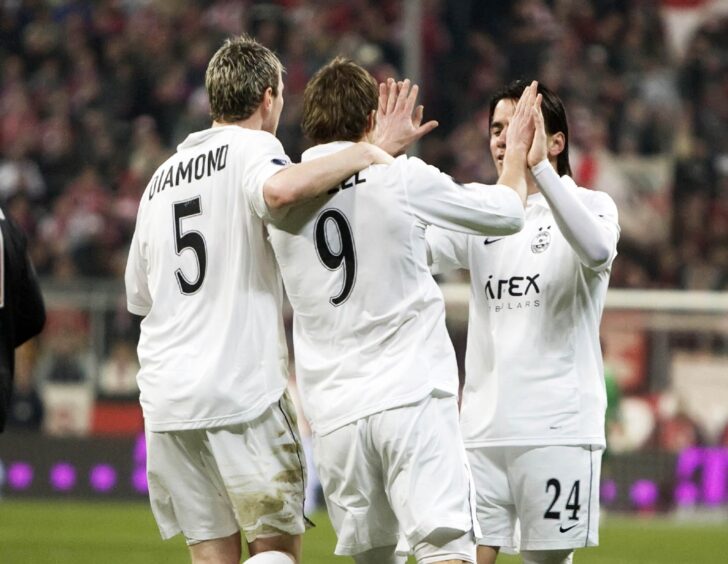
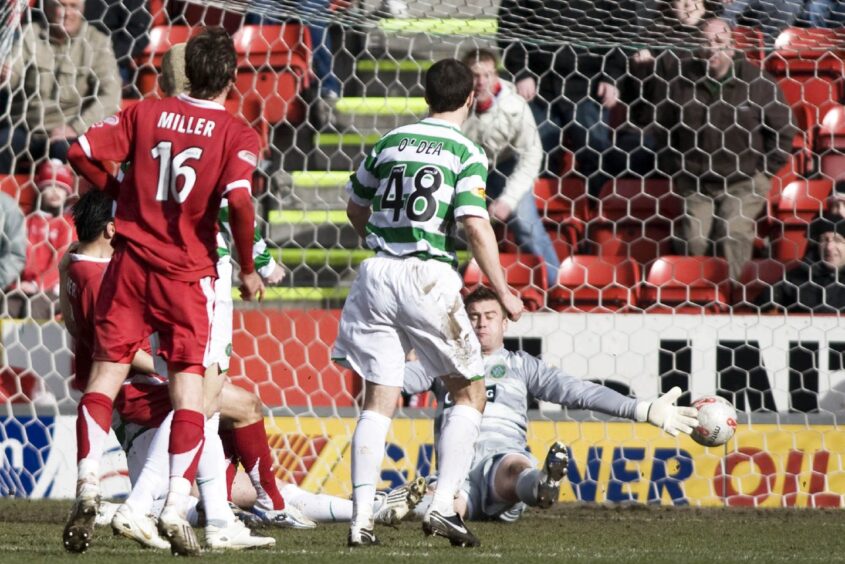
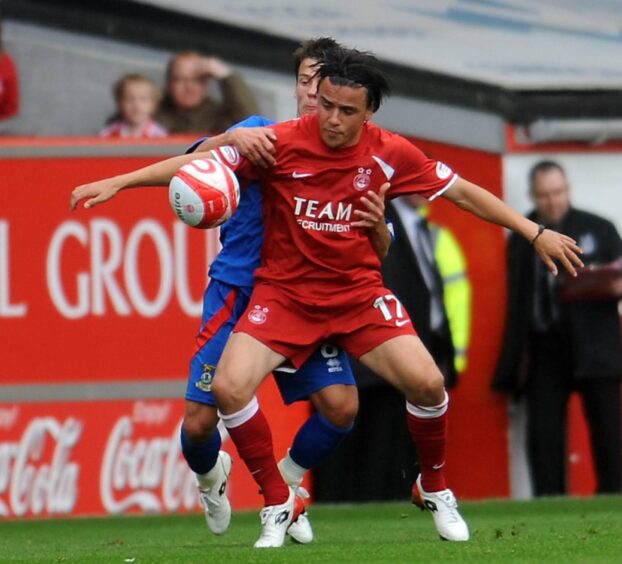
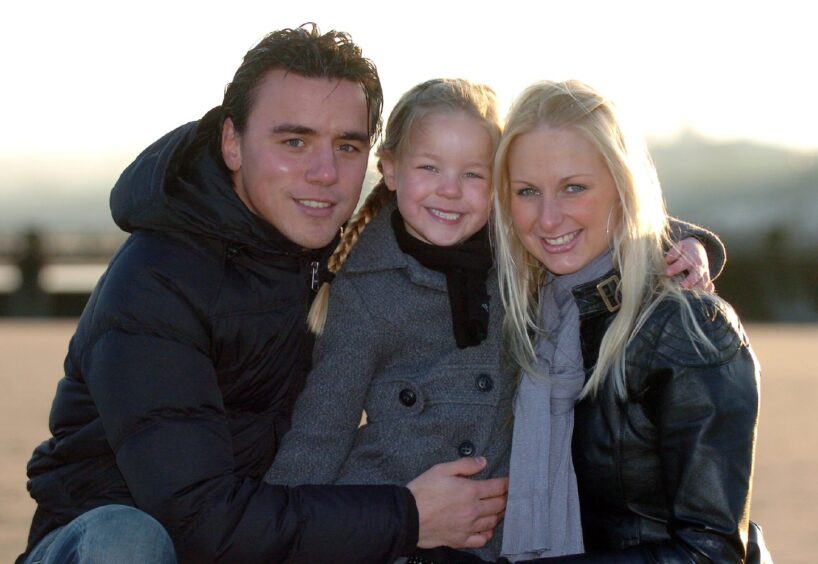
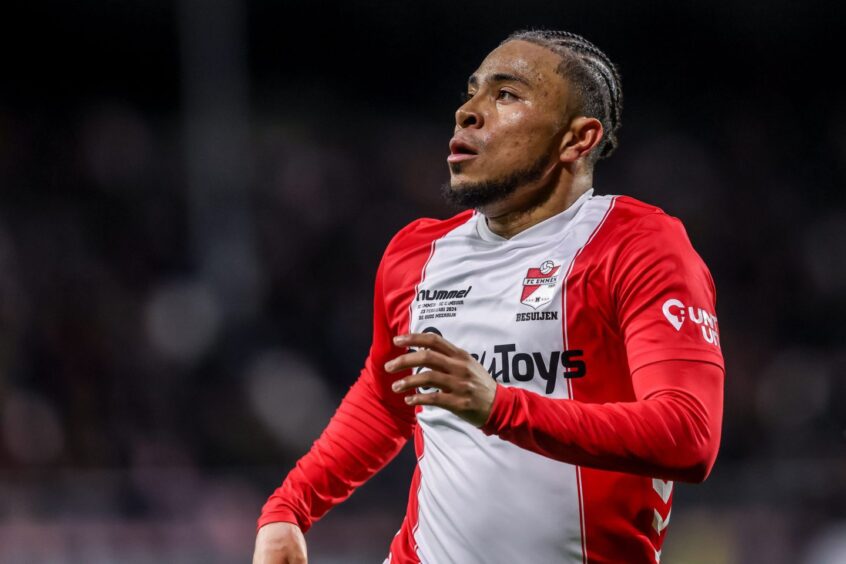
Conversation